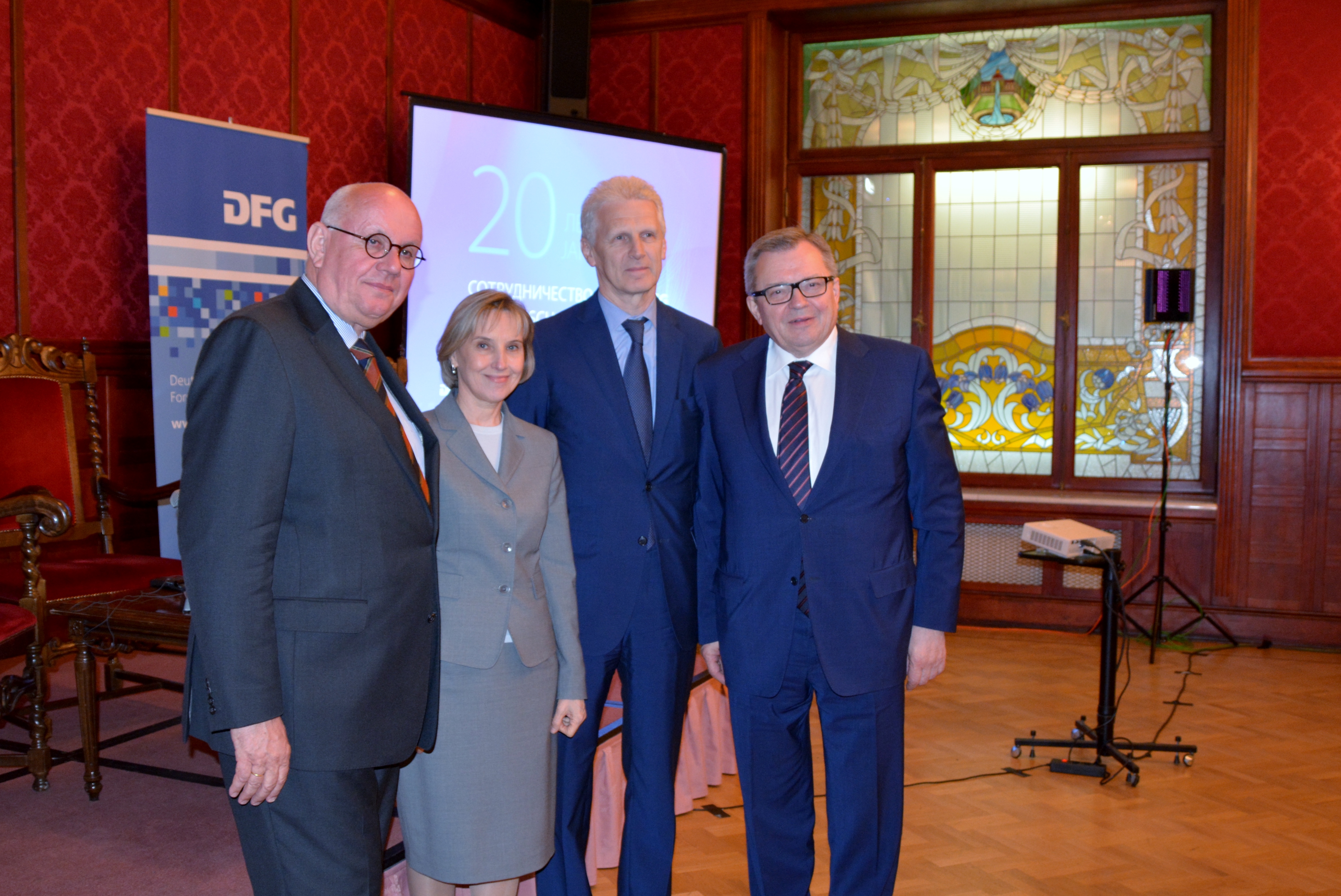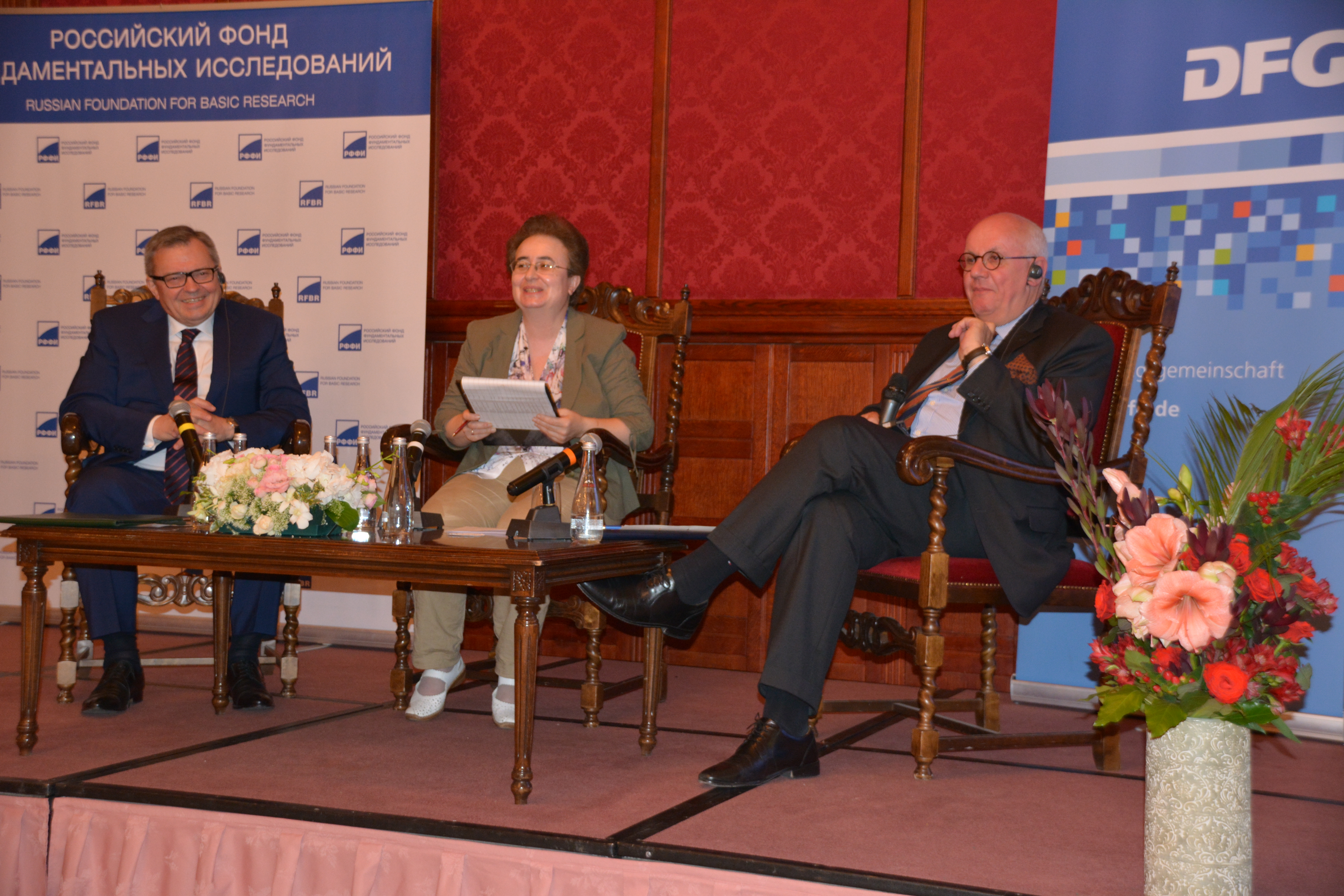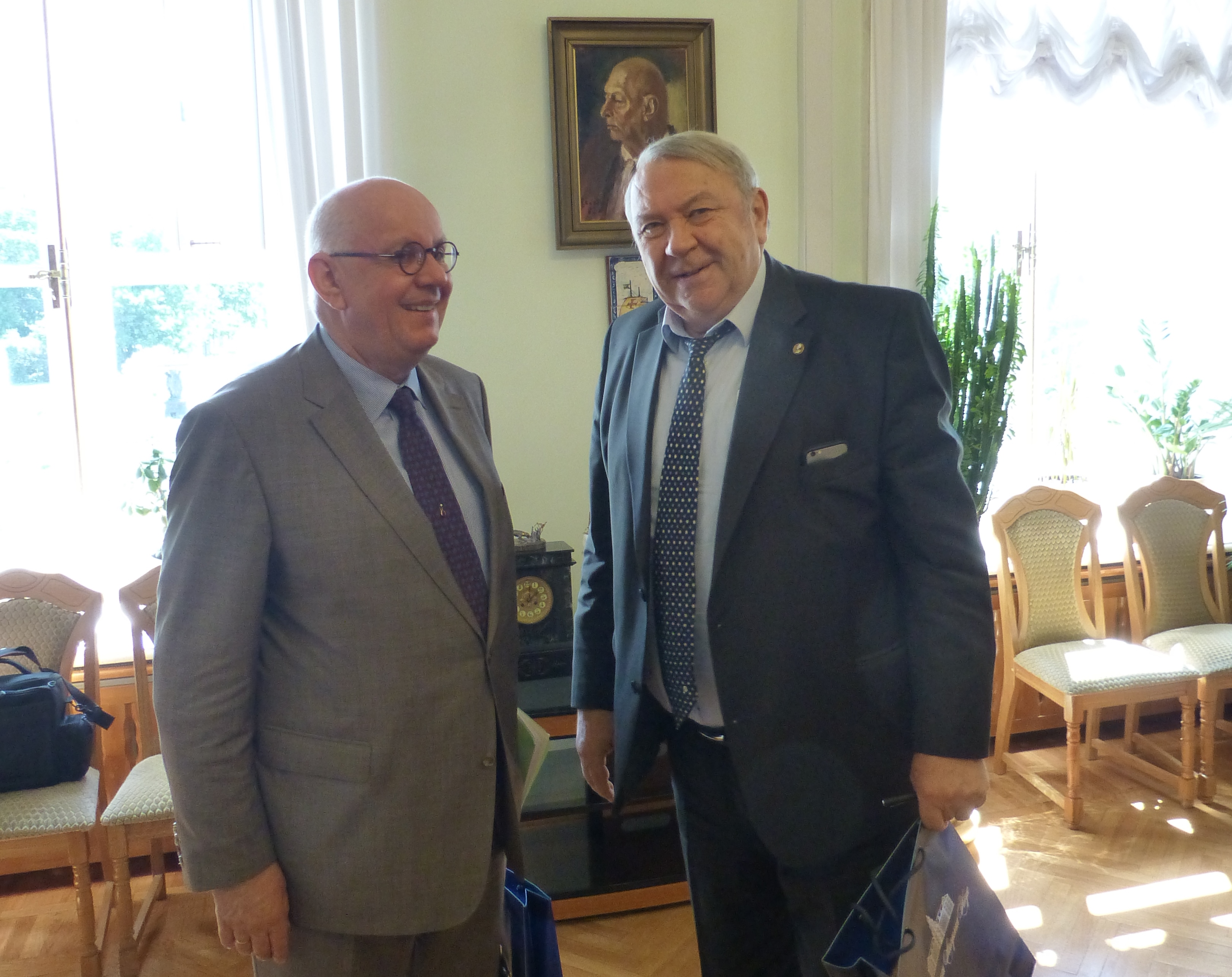Milestone in Moscow: 20 Years of DFG/RFBR Partnership
(26.06.15) At the beginning of June, the Deutsche Forschungsgemeinschaft (DFG, German Research Foundation) and the Russian Foundation for Basic Research (RFBR) held a ceremony to mark their 20-year partnership. The event was attended by DFG President Peter Strohschneider, who met with senior ministry and government representatives and the heads of Russian and German partner organisations of the DFG to discuss both the past and the future.

Attendees at the anniversary celebration: Peter Strohschneider (DFG President), Ludmila Ogorodova (MON Deputy Minister), Andrei Fursenko (advisor to the President of the RF), Vladislav Panchenko (Chair of RFBR)
The key topic of the celebratory event on 2 June in Moscow was the role of the two funding organisations in the development of German-Russian cooperation in research. The two partner organisations invited guests to attend a panel discussion with key representatives of science policy and administration, as well as many researchers from leading Russian universities and research institutions who have received joint funding from the DFG and RFBR over the last 20 years. In front of 200 guests, DFG President Peter Strohschneider and the Chair of the Council of the RFBR, Vladislav Panchenko, answered questions put by moderator Tatiana Ilarionova. Professor Ilarionova from the International Institute of Public Administration and Management of the Russian Presidential Academy of National Economy and Public Administration (IIPAM RANEPA) is the editor-in-chief of research journal "Russia - Germany", which for several years has reported regularly on research projects funded by the DFG and RFBR.

At the panel discussion: Vladislav Panchenko (Chair of RFBR), moderator Tatiana Ilarionova (IIPAM RANEPA), Peter Strohschneider (DFG President)
On the day before, the DFG delegation visited the Presidium of the Russian Academy of Sciences (RAN) and met with President Vladimir Fortov, who signed the first cooperation agreement with the DFG 20 years ago in his function as Chair of the RFBR. The historic anniversary with RFBR also signalled the beginning of a new partnership, as the DFG and the Russian Science Foundation (RSF), which was founded last year, agreed to foster institutional cooperation. The expansion of cooperation in science and research between Germany and Russia was also the subject of a meeting between the DFG delegation and the Russian Ministry of Education and Science (MON). Both Deputy Minister Ludmila Ogorodova and the Envoy and Permanent Deputy Ambassador of the Federal Republic of Germany, Georg Birgelen, welcomed the initiative of the DFG and RSF to continue supporting dialogue between the two research nations in spite of the tense political situation.

At the Presidium of the Russian Academy of Sciences (RAN): Peter Strohschneider (DFG President) and Vladimir Fortov (RAN President)
The DFG delegation's trip to Russia concluded with a visit to research institutions in the "northern capital" of St. Petersburg, where the first German-Russian Collaborative Research Centre to be funded jointly by the DFG and RFBR (TRR 160) has been based since the start of the year. At meetings in the rector's office of the State University with rector Nikolai Kropachev, who is also the chair of the Association of Leading Russian Universities, and the Faculty of Mathematics and Mechanics, CRC spokesperson Manfred Bayer (TU Dortmund) was able to present the topic and participating laboratories in the CRC "Coherent Manipulation of Interacting Spin Excitations in Customised Semiconductors".